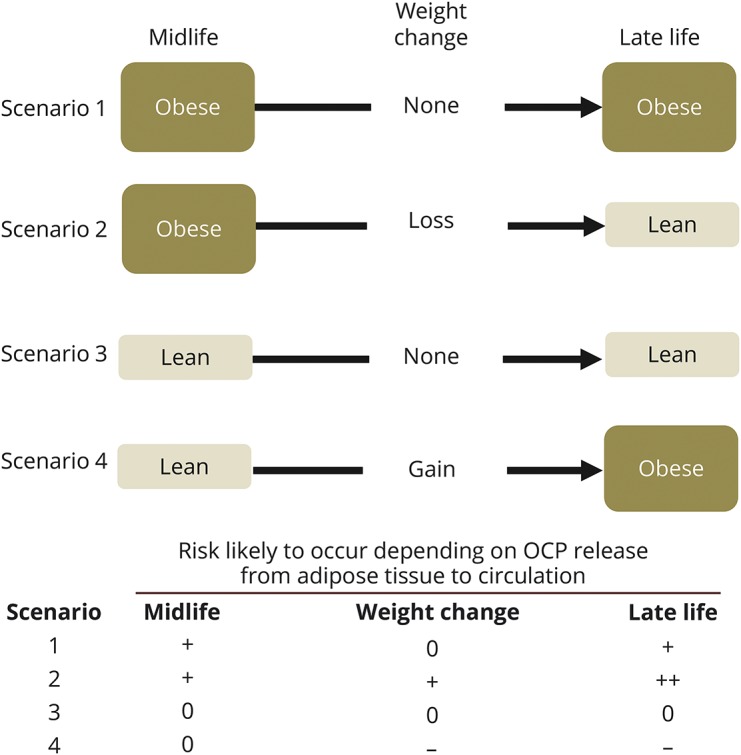Figure 1. Four hypothetical scenarios of relations between obesity and dementia regarding neurotoxic organochlorine pesticides (OCPs).

There are 2 ways of releasing OCPs from adipose tissue to circulation, which in turn lead to increased brain concentrations: obesity-related dysfunctional adipocytes and weight loss. Meanwhile, weight gain decreases serum concentrations of OCPs through sequestration to adipose tissue. Risks of dementia likely to occur under our hypothesis according to 4 scenarios of weight and weight change from midlife to late life are assumed to be + for obese persons and 0 for lean persons at midlife, while risk during weight change are assumed to be + for weight loss, 0 for no change, and − for weight gain. As body weight in late life results from body weight in midlife and its subsequent change from midlife to late life, a mean risk for 2 obese elderly is 0 (mean of + and −) while this figure for 2 lean elderly is + (mean of ++ and 0). Thus, the increased risk of dementia observed among obese persons at midlife may paradoxically become protective for dementia, given the observed changes in body mass index trajectory over the life course.
